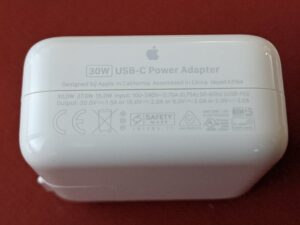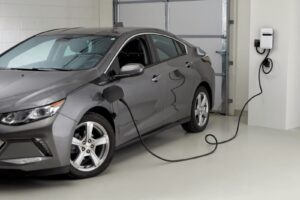Looking for the perfect battery for your car? Look no further! Picking the right battery for your car is crucial for ensuring reliable performance and avoiding unexpected breakdowns. But with so many options out there, it can be overwhelming to know where to start. Don’t worry, we’ve got you covered. In this article, we’ll guide you through the process of selecting the best battery for your car, taking into consideration factors such as size, type, and performance. So, let’s dive right in and discover how to pick the perfect battery for your car.
How to Pick the Right Battery for Your Car
Choosing the right battery for your car is essential for ensuring optimal performance and reliability. With so many options available in the market, it can be overwhelming to find the perfect fit for your vehicle. However, by considering a few key factors and understanding your car’s specific requirements, you can make an informed decision. In this article, we will guide you through the process of picking the ideal battery for your car.
Understanding Car Batteries
Before diving into the selection process, it’s crucial to have a basic understanding of car batteries. Car batteries are rechargeable devices that provide electrical energy to start the engine and power the various electrical systems within the vehicle. They play a vital role in ensuring the smooth functioning of your car.
Car batteries typically consist of six cells, each producing 2.1 volts of electrical energy. Together, they provide a total of 12.6 volts, which is the standard voltage required for most vehicles. However, it’s important to note that different vehicles may have specific voltage requirements, so consulting your car’s manual is always a good idea.
Factors to Consider When Choosing a Car Battery
When selecting a battery for your car, there are several factors you should take into account. Let’s explore each of these factors in detail:
Battery Size
Choosing the right size battery is crucial to ensure a proper fit within your car’s engine compartment. The battery size is determined by various factors, including the terminal placement, dimensions, and the specific make and model of your vehicle.
To find the correct battery size, refer to your car’s manual or consult a trusted automotive professional. It’s important to note that using an incorrectly sized battery may lead to difficulty in installation and even damage to your vehicle’s electrical system.
Battery Type
Car batteries come in different types, each with its own advantages and disadvantages. Understanding the different types will help you make an informed decision based on your driving needs:
- Lead-Acid Batteries: These are the most common and affordable type of car batteries. They are known for their reliability and ability to provide a high surge of power, making them ideal for starting the engine.
- AGM (Absorbent Glass Mat) Batteries: AGM batteries are known for their maintenance-free design and ability to handle deep cycling. They are more expensive than lead-acid batteries but offer superior performance and a longer lifespan.
- Gel Batteries: Gel batteries use a gel electrolyte that offers improved resistance to vibration and high temperatures. They are often used in high-performance vehicles and can be more expensive than other types.
- Lithium-Ion Batteries: These batteries are lighter, have a longer lifespan, and provide better energy efficiency compared to traditional lead-acid batteries. However, they are significantly more expensive and may require additional modifications to your vehicle’s electrical system.
Consider your driving habits, budget, and specific requirements when selecting the type of battery that best suits your needs.
Cranking Amps (CA) and Cold Cranking Amps (CCA)
Cranking Amps (CA) and Cold Cranking Amps (CCA) are measurements that indicate a battery’s ability to start the engine in different conditions. CA represents the number of amps a battery can deliver at 32°F (0°C) for 30 seconds, while CCA measures the same at 0°F (-18°C) for 30 seconds.
To determine the appropriate CA and CCA ratings for your car, consult your car’s manual or seek advice from a professional. Choosing a battery with inadequate CA and CCA ratings may result in difficulty starting your vehicle, especially in colder climates.
Reserve Capacity (RC)
Reserve Capacity (RC) is an important consideration, especially if you frequently use power-consuming accessories in your vehicle, such as audio systems or power outlets. RC measures the battery’s ability to sustain a minimum voltage output for a specific period when the charging system malfunctions.
A higher RC rating indicates a longer duration of power supply, providing you with peace of mind during unforeseen circumstances or when your vehicle’s charging system fails.
Brand Reputation and Warranty
Opting for a reputable brand is recommended when choosing a car battery. Well-established brands often prioritize quality and offer better warranties, ensuring that you receive reliable customer support if an issue arises with your battery.
Check customer reviews and ratings to gauge the performance and durability of different battery brands. Additionally, consider the warranty offered by the manufacturer, as it can provide peace of mind and potentially save you money in case of any battery-related problems.
Maintaining Your Car Battery
Once you’ve chosen and installed the perfect battery for your car, it’s important to maintain it properly to ensure longevity and optimal performance. Here are some essential tips for maintaining your car battery:
- Keep the battery terminals clean and free from corrosion. Regularly inspect and clean them using a mixture of baking soda and water.
- Ensure the battery is securely fastened in the engine compartment to prevent vibrations that may damage its internal components.
- Avoid draining the battery excessively by minimizing the use of power-consuming accessories when the engine is not running.
- If you plan to store your vehicle for an extended period, consider using a battery tender or disconnecting the battery to prevent it from losing its charge.
- Regularly inspect the battery for any signs of damage, leakage, or swelling. If you notice any abnormalities, seek professional assistance.
- Perform regular battery checks and tests to monitor its health and identify any potential issues before they escalate.
Choosing the right battery for your car is essential for maintaining its overall performance and reliability. By considering factors such as battery size, type, CA and CCA ratings, RC, brand reputation, and warranty, you can make an informed decision that suits your driving needs and vehicle requirements. Remember to also prioritize proper battery maintenance to ensure optimal performance and a longer lifespan for your car’s battery.
Frequently Asked Questions
What factors should I consider when choosing a battery for my car?
When selecting a battery for your car, there are a few key factors to consider:
How do I determine the right size of battery for my car?
To determine the correct size of battery for your car, you should consult your vehicle’s owner’s manual or check the existing battery for the group size. The group size refers to the physical dimensions of the battery and ensures compatibility with your car’s battery compartment.
What is the importance of checking the cold-cranking amps (CCA) rating?
The cold-cranking amps (CCA) rating indicates a battery’s ability to start an engine in cold weather conditions. It is important to choose a battery with a CCA rating that meets or exceeds the requirements set by your vehicle’s manufacturer. Insufficient CCA could result in difficulty starting your car, especially during colder temperatures.
Should I opt for a maintenance-free battery or a battery that requires maintenance?
This choice depends on your preferences and driving habits. Maintenance-free batteries, also known as sealed batteries, offer convenience as they do not require adding water or checking electrolyte levels. On the other hand, batteries that require maintenance may require periodic maintenance to ensure optimal performance, such as checking and adding distilled water when necessary.
What is the average lifespan of a car battery?
The average lifespan of a car battery typically ranges from three to five years. However, this can vary depending on various factors, including the quality of the battery, driving conditions, and climate. Regular maintenance, such as keeping the battery terminals clean and ensuring proper charging, can help extend its lifespan.
Can I install a battery with higher cold-cranking amps (CCA) than recommended?
While installing a battery with higher CCA rating might seem beneficial, it is generally recommended to adhere to the manufacturer’s specifications when choosing a battery. Installing a battery with significantly higher CCA may not provide any substantial advantage and can potentially overload the vehicle’s electrical system. It’s best to consult your vehicle’s manual or a professional for guidance on selecting the appropriate battery.
Final Thoughts
In conclusion, when it comes to picking the right battery for your car, there are several factors to consider. Firstly, identify the correct battery size and type for your vehicle. Secondly, evaluate the battery’s cold cranking amps (CCA) to ensure it is suitable for your climate. Additionally, look for batteries with a good warranty and reliable brand reputation. Furthermore, consider the battery’s reserve capacity and its ability to handle frequent starts and stops. By following these guidelines, you can confidently choose the best battery for your car that meets your specific needs.


